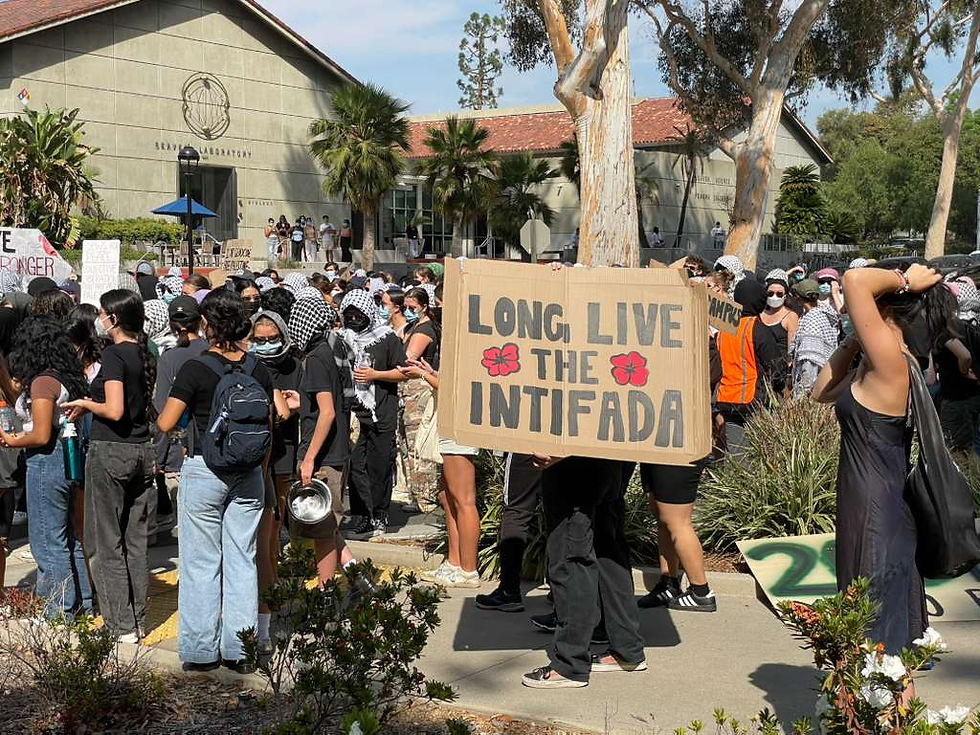Class Reviews: Seven Classes to Take Before Graduating
- The Claremont Independent

- Sep 4, 2013
- 4 min read
Trying to figure out which classes to take upon first entering college can be a daunting task. Fulfilling GE requirements (for those of you who have them) while still taking genuinely interesting classes is no small feat. Therefore, we at the Claremont Independent have gone around and asked students from across the 5Cs which class they would most highly recommend incoming students take during their time here. In the end, we came up with a diverse list that will hopefully help you navigate through the seemingly infinite amount of classes available at the Claremont Colleges.
Political Philosophy
While CMC is mainly known for its Economics and Government Departments (and rightly so), the CMC Philosophy Department is a hidden gem that every Claremont College student should discover, regardless of major. Even though the Philosophy GE might seem like a chore at first for CMC non-philosophy majors, you’d be surprised with how fascinating these classes can be. As an Econ-Gov dual major, I chose to take Political Philosophy for my philosophy GE, hoping to fulfill my GE with the least pain possible. A few weeks in, and Political Philosophy had become one of my favorite classes at CMC. Although the class was three times a week (including a class on the worst of class days, Friday), it was a joy going to each and every class because I always knew the discussions would be thoroughly enjoyable (not to mention enlightening). By the end of the semester, Professor Schroeder had made a class full of Econ and Gov majors (like myself) appreciate philosophy in a way we would never have expected. My personal highlight was Schroeder’s lectures on Kant, as he made a nearly indecipherable text comprehensible and engaging. There aren’t many classes that I can genuinely say changed the way I think about the world, but Political Philosophy with Professor Schroeder definitely did.
Behavioral Economics
Behavioral Econ at Scripps with Professor Sean Flynn is a once a week seminar you don’t want to miss out on. Professor Flynn (author of Economics for Dummies and the number one seeking Econ text book) is really engaging and encouraging. Students are encouraged to tell personal stories in class, and then he proceeds to analyze and relate them back to behavioral economics. There is often a sizable amount of reading, but you have a week to do it — and though it’s dense, it’s also interesting. Behavioral Econ is a great mix of 5C students and really allows you to think about economics in a completely new way.
Basic Principles of Chemistry
The science requirement: It hangs over the heads of so many whom major in the humanities or social sciences for far too long. Consider eliminating it before it causes trouble. Consider chemistry. Give yourself more flexibility in future semesters, exposure to a different way of looking at the world, and, just maybe, second thoughts about your anticipated major. Chemistry is great not because it’s easy, but because it’s a challenge. It does not rival Organic Chemistry in difficulty, but chances are that it will demand more of you than the average government course. After three 9:00 a.m. classes and one four-hour lab per week, you’ll end up knowing much more about the world around you at its basic level, and you’ll leave with more respect for those whom do choose a major in the sciences, and with it, several such courses each semester.
California Politics
And you thought field trips were a thing of the past! In CMC Professor Ken Miller’s California Politics, students not only read about and discuss California’s government, history, and current political issues, but they also see them first-hand. The class has a long tradition of visiting Sacramento for a couple days of meetings with politicians, journalists, and lobbyists – the people who make Sacramento move (well, at least the Democrats among those) – so students gain experiences that even the Kravis Center cannot provide. California Politics is about more than just a state’s politics, it’s about the struggle of the largest state in the Union to reconcile its dreams with the realities of the 21st Century. Oh, and you’ll leave with plenty of stories about Governor Jerry Brown, the state’s oldest and youngest governor, under your belt.
Ballroom Dancing
One of my favorite classes taken so far is Ballroom Dancing at Pomona with Mr. Paul Roach. Knowing how to dance socially is very useful in life after college for weddings, formal events, etc. and is a sure way to impress friends, family, and even employers. Not only does this class fulfill one of your PE requirements, but you will have lots of fun doing it and meet and dance with some really talented students across the 5Cs.
Intro. to Computer Science
Want to learn to code? Introduction to Computer Science (CS5) with Prof. Dodds is the quintessential Harvey Mudd experience. Taken by Mudders and off-campus students alike, CS5 is accessible no matter your past technical experience. The class is a great blend of hands-on labs and theoretical concepts, teaching programming skills sure to be useful in a wide variety of professions.
Intro. to Accounting
As a freshman, I reviled the idea of accounting: mindless, awful number-crunching. Still, against my better judgment, I took Professor Massoud’s Intro. to Accounting (Econ 86) at my parents’ behest and was shocked to find myself loving it. As Professor Massoud says, accounting is the “language of business,” and whether or not you plan to become an accountant, as I have, it’s pretty likely you’ll be involved in the world of business. Professor Massoud’s class offers insight and clarity into that world, and I guarantee he’ll make it interesting. Just take it, you’ll love it!
.png)



Comments